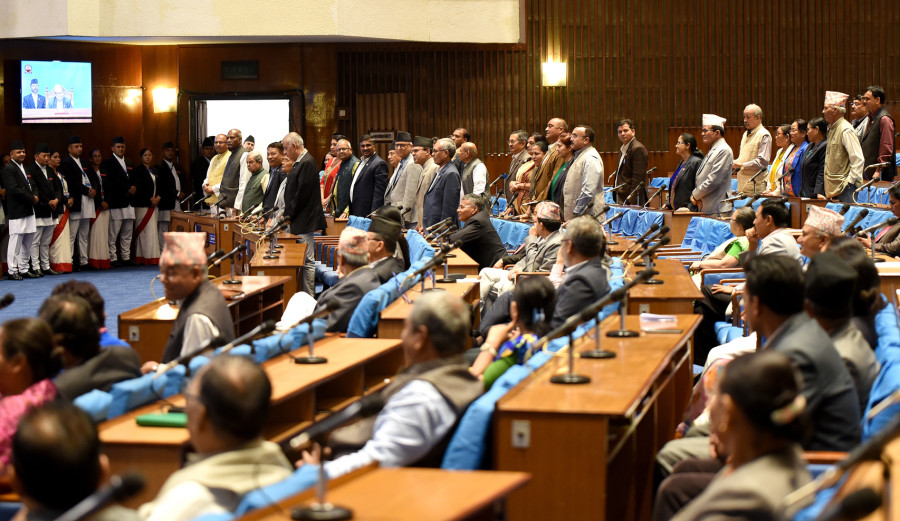National
Oli administration is ignoring a key component of democracy during lawmaking
The government over the last two years introduced several bills without holding consultations with the concerned parties, thereby inviting criticism and controversy, experts say.
Binod Ghimire
The Land Management Ministry on April 29 last year registered a bill in the National Assembly to amend the Guti Act which proposed nationalising all the guthis, both public and private. Locals, particularly from the Newar community, took a serious exception to the bill and started demonstrations from June 9.
Two weeks later, the government withdrew the bill from the federal parliament. The government had drafted the bill without adequate consultation with experts and the people from the Newar community, prompting one of the largest protests against the KP Sharma Oli government.
Though not to the extent of the Guthi Bill, half a dozen bills introduced by the Oli government have faced backlash for being drafted without consulting with the parties concerned.
The National Human Rights Commission in March last year submitted 17 points to the government, asking it to incorporate them in the bill to amend the National Human Rights Commission Act. However, when the amendment bill was drafted, not a single suggestion was included in it. It rather had a provision that undermined the authority of the constitutional rights body, which said the commission would recommend the cases it has investigated to the attorney general. The Attorney General’s Office would determine whether to act as per the recommendation.
The commission has objected to the government move. The bill is under consideration in Parliament.
Legal experts say the government has completely ignored the participatory lawmaking process, which is a key element of democracy.
“Naturally, the government will be criticised if the laws are drafted without the consent of the people for whom they are made,” said Mohan Lal Acharya, former constitutional advisor to the Constituent Assembly, at an interaction in the Capital on Thursday. “Every bill that has faced public criticism was drafted without consent from the respective community.”
For instance, the Media Council Bill, which faced huge criticism from journalists and the media, was introduced without prior discussions with the associations of journalists and media houses.
The bill, which has now been endorsed by the National Assembly, was revised in the House after a series of protests by the journalists and civil society organisations.
The Information Technology Bill, which proposes a fine up to Rs1.5 million and/or five years imprisonment for individuals who post online contents that are deemed “improper” by the authorities, too has received criticism from the different quarters.
Acharya said the rule of law cannot be maintained in the lack of proper legislation.
“The people in power must understand they cannot be experts in every field,” said Acharya. “Therefore, there must have been adequate discussion with the concerned people before drafting the laws.”
Experts said despite criticism and controversy surrounding one bill after another, the government has failed to learn, experts said.
In mid-December, the government came up with Special Service Bill which envisions forming a powerful intelligence body within the prime minister’s office. The bill states that audio or audiovisual conversation at the individual or institutional level that is suspicious can be surveilled, monitored or intercepted.
“If the bills are prepared without notice to the people, we have to understand there’s some mala fide intent behind it,” said Shiva Bishunkhe, director at the Nepal Law and Policy Center, a non-government organisation that holds discussions on government bills and gives feedback to Parliament.




 8.67°C Kathmandu
8.67°C Kathmandu















